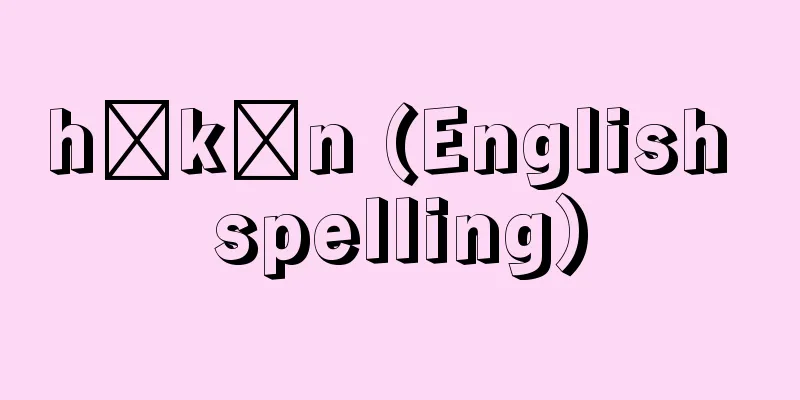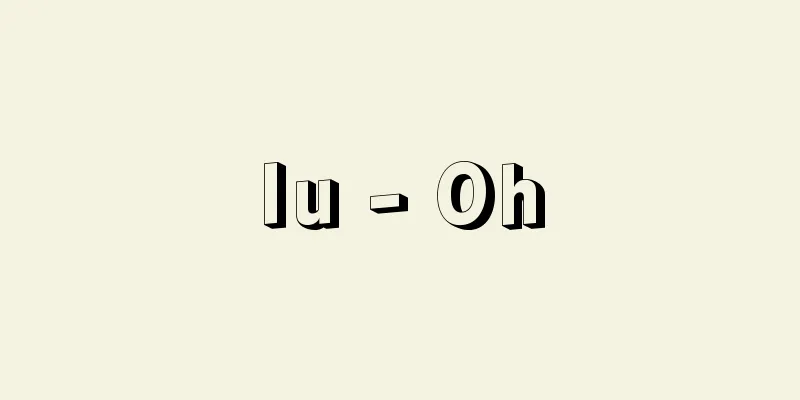Underground - Jige

〘Noun〙 ("ji" and "ge" are the Go-on pronunciations of "ji" and "ge" respectively) 1. The state of not being recognized as eligible to enter the palace of the Seiryoden Denjo-no-Ma. Also, the person. A term used for Dojo, nobility, and denjoiners. Generally, it refers to those of sixth rank or lower, excluding kurōdo, and those of fourth or fifth rank who are not qualified to enter the palace, but even those who were originally eligible to enter the palace could be temporarily deprived of this and become jika, and also, after the end of the Kamakura period, when family status was fixed, there were people who continued to be jika regardless of rank or official position. Jikain. ⇔ Unkaku. ※Kyureki-Kyureki-Sho, Tenryaku 2 (948), July 19th: "At 2:00 p.m., the Imperial Court, including the Minister of the Left and the Minister of the Underground, and the Minister of the Underground , were in the palace." ※Okagami (early 12th century), 3: "This Chamberlain Dainagon was the head of the Chamberlains when he was still in the Underground, even though he was Bingo no Suke. It is an extremely rare thing." ② Not having a public position such as a rank or official position. Also, a person like that. Underground person. Common people. Secular. The common people. ※Renri Hisho (1349) "Recently, Tameyo, Tamesuke, and Tamemichi Ason have all been good men, and I have been fawning every morning and evening. I have heard that there are many visitors from the Underground under the flowers and in front of the moon." ③ The countryside or local area in comparison to Kyoto, Honjo, and Ryoke. Also, the residents. ※Azuma Kagami - March 13, 1181 (Yōwa 1) "When I was living in the village, I decided to live in the village. The two of them rode on horses and there were two letters of attack before that . This was because of their ambition." ※Kōyasan documents - December 5, 1387 (Kakei 1) - Letter from Ota Shikibu no Jō "It would be a shame if the peasants were to be bothered by such a matter." ④ Within the village where you live. Within the town. ※Amakusahon Isoho (1593) - About the life of Isopo "Gigueno (Jigen) Shukurau Jakuhai no Mono Made"Chi-ka [underground]Ji- sagariji... [underground]Source: The Selected Edition of the Japanese Language Dictionary About the Selected Edition of the Japanese Language Dictionary Information |
〘名〙 (「じ」「げ」はそれぞれ「地」「下」の呉音)① 清涼殿殿上の間に昇殿する資格を認められていないこと。また、その人。堂上、または公卿、殿上人に対する語。一般には蔵人を除く六位以下の者および四位・五位のうちの殿上人の資格を得ていない者についていうが、本来昇殿の資格ある者でも一時的にこれを奪われて地下となる場合があり、また鎌倉末以降家格が固定すると位階官職に関係なく地下であり続ける者が生じた。地下人。⇔雲客(うんかく)。※九暦‐九暦抄・天暦二年(948)七月一九日「午二刻殿上上達部左大臣以下候二御前一、地下卿上(相か)等候二南殿一」※大鏡(12C前)三「この侍従大納言殿こそ、備後介とてまだ地下におはせしとき蔵人頭になりたまへる、例いとめづらしきことよな」② 位階、官職など公的な地位を持たないこと。またその人。地下人。庶民。世俗。民衆。※連理秘抄(1349)「近比、為世・為相卿、為道朝臣みな達者にて、朝夕にもてあそばれけり。地下にも花の下・月の前の遊客上手おほくきこゆ」③ 京師および本所・領家に対する田舎、在地。また、その住民。※吾妻鏡‐養和元年(1181)三月一三日「剰義定居二地下一之時。件両人乍レ乗レ馬打二通其前一訖。是已存二野心一者也」※高野山文書‐嘉慶元年(1387)一二月五日・太田式部丞書状「一地下事、左様に百姓等とかく煩候らん事、返返無勿躰候」④ 自分の住んでいる集落の内。郷内。※天草本伊曾保(1593)イソポの生涯の事「Gigueno(ヂゲノ) シュクラウ ジャクハイノ モノマデ」
ち‐か【地下】じ‐さがり ヂ‥【地下】出典 精選版 日本国語大辞典精選版 日本国語大辞典について 情報 |
<<: Underground network - Jigeami
Recommend
Zhang Jun; Chang Chün
[Born] Shosei 4 (1097) [Died] August 28, 1164 (Ryū...
Cannabis fly - Cannabis fly
…Long-distance trade flourished, with goods flowi...
Emperor Gokogon
Year of death: Oan 7/Bunchu 3.1.29 (1374.3.12) Yea...
São Jorge da Mina (English spelling)
…The name El Mina (meaning "mine") come...
Elimais - Elimais
...Its characteristics are represented by a front...
Touin [town] - Touin
A town in Inabe County in northern Mie Prefecture....
Caxton, William
Born: circa 1422, Kent [Died] 1491. London The fir...
Bad Godesberg
…The Rhine runs through the city, and three-quart...
Kosuke Anayama
...A general name for ten brave warriors who serv...
Return of a loved one
〘 noun 〙① To go around various places to express g...
Amamiya Silk Mill
...A social movement aimed at improving women'...
Slide system - Slide system
It is a method of automatically adjusting wages ac...
Convertible banknote (English spelling)
Banknotes are guaranteed to be convertible into s...
Honjo Munesuke
Year of death: August 16, 1699 (September 9, 1699)...
fourniture de bureau (English spelling) fournituredebureau
…The English word for stationery is stationery, b...









